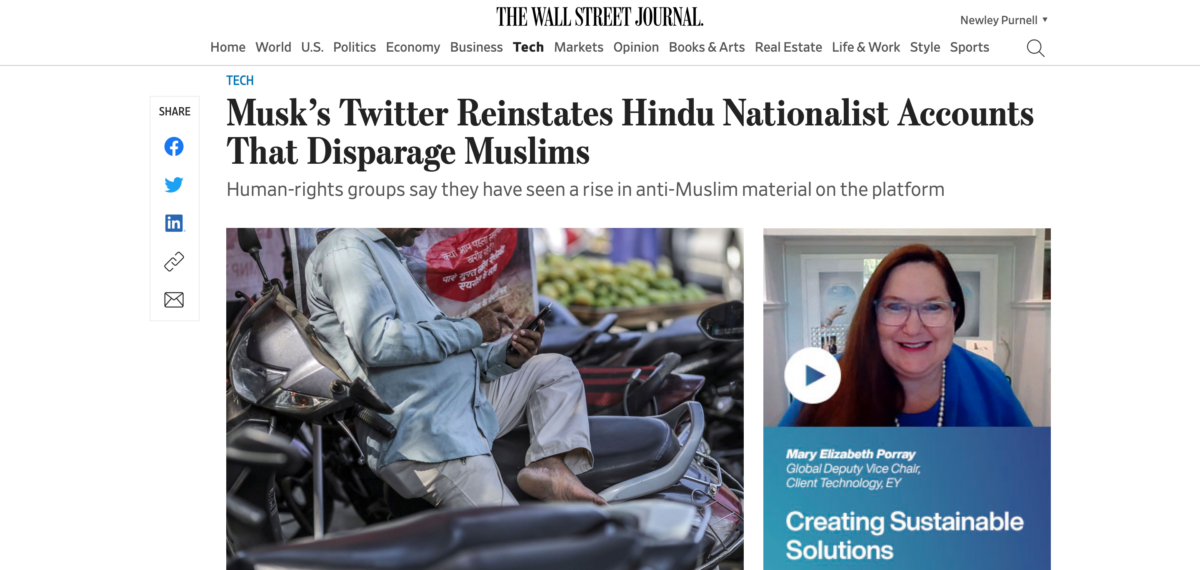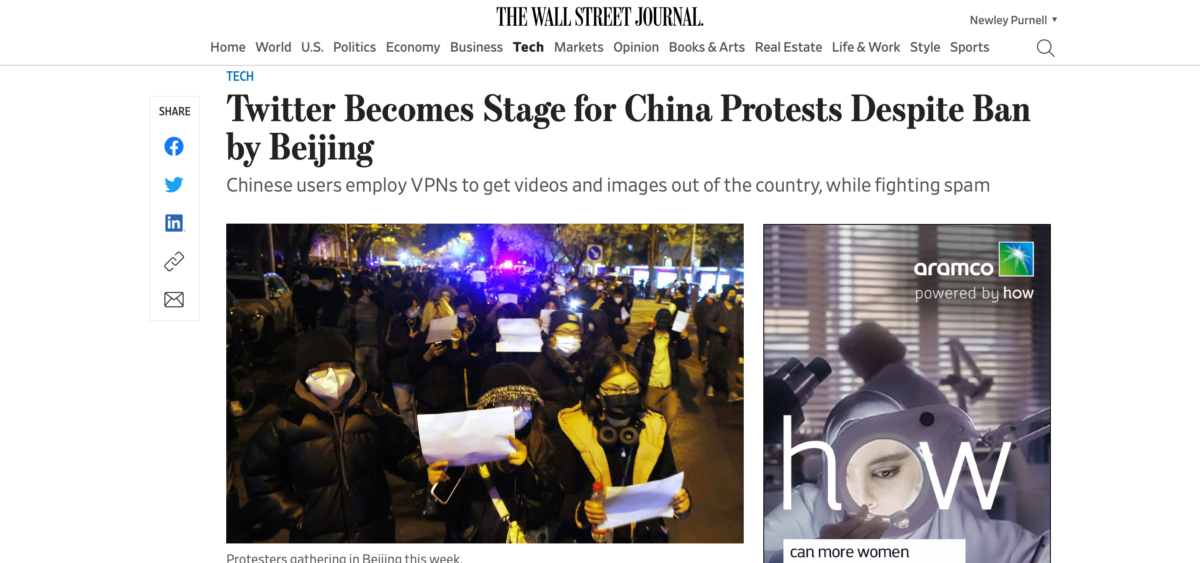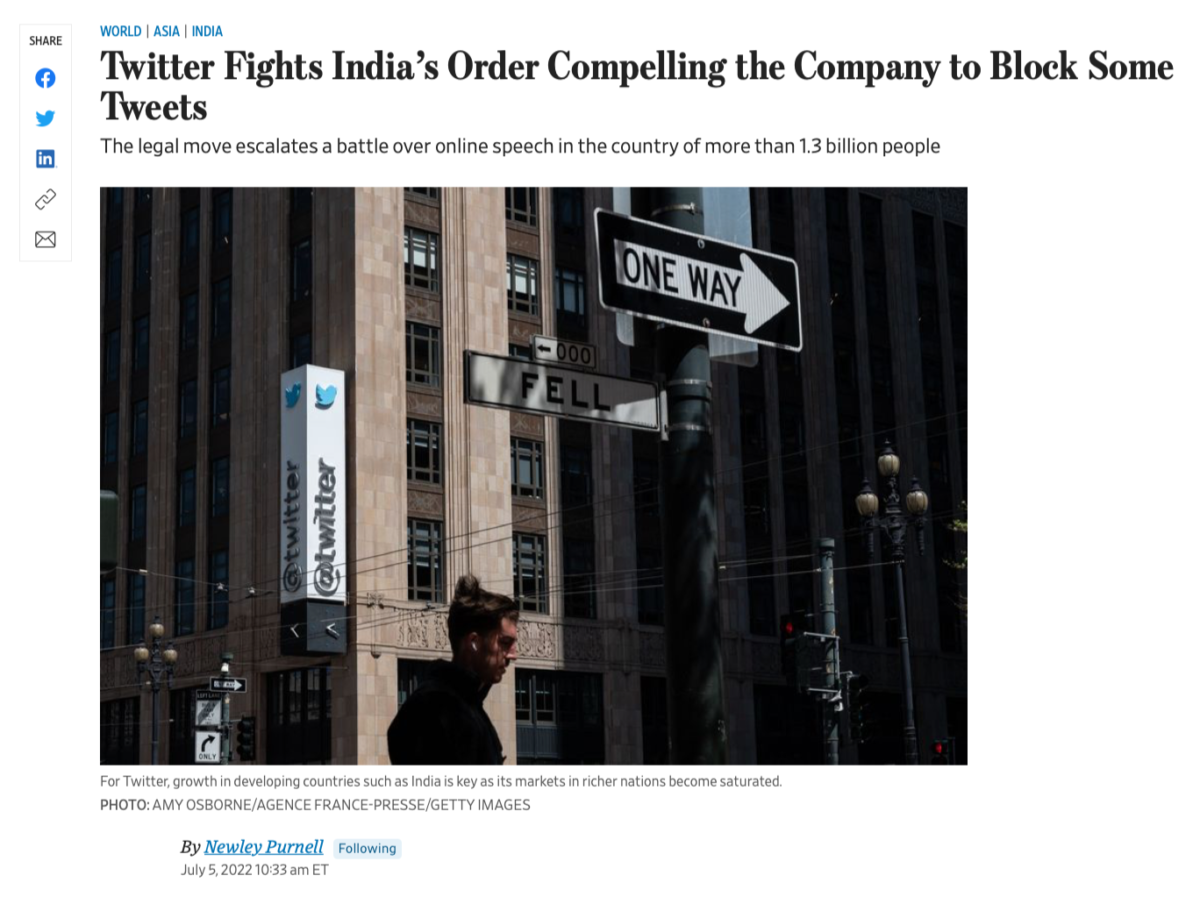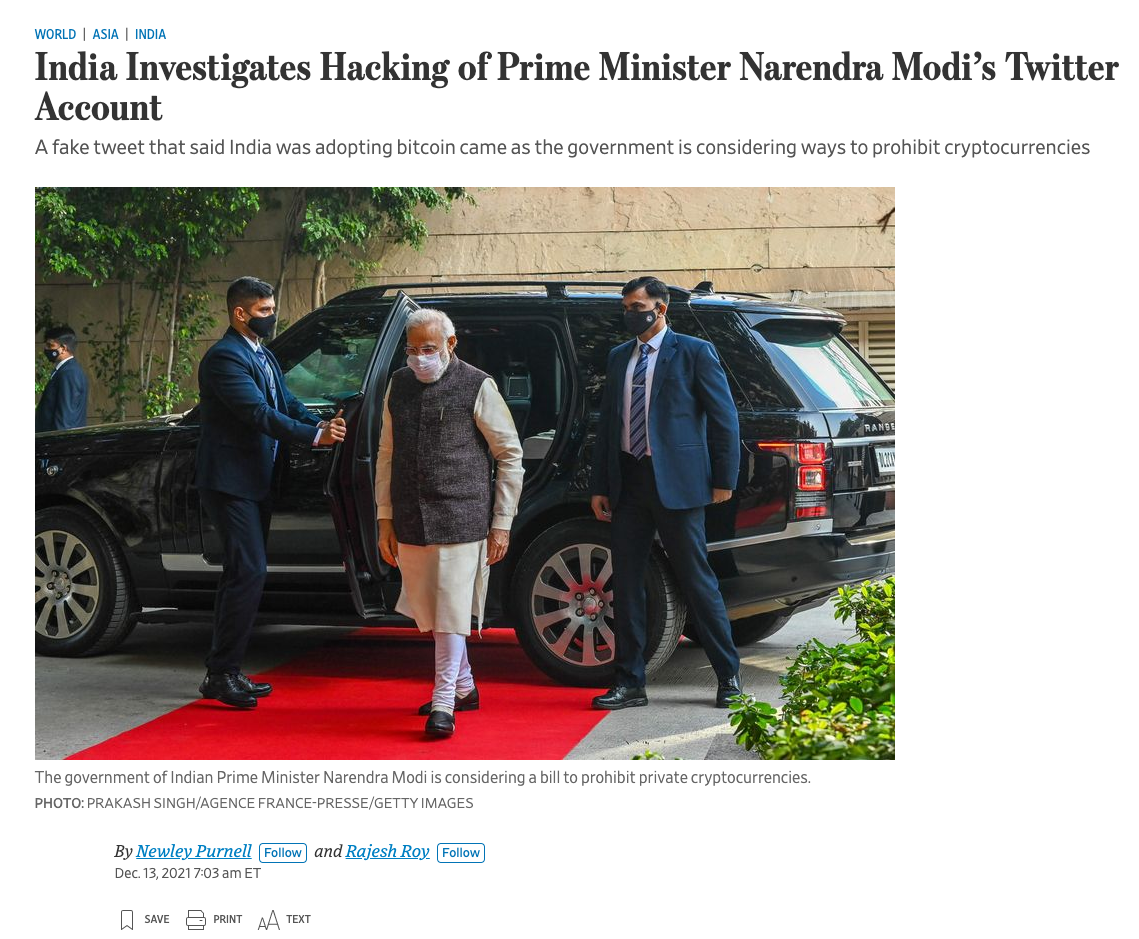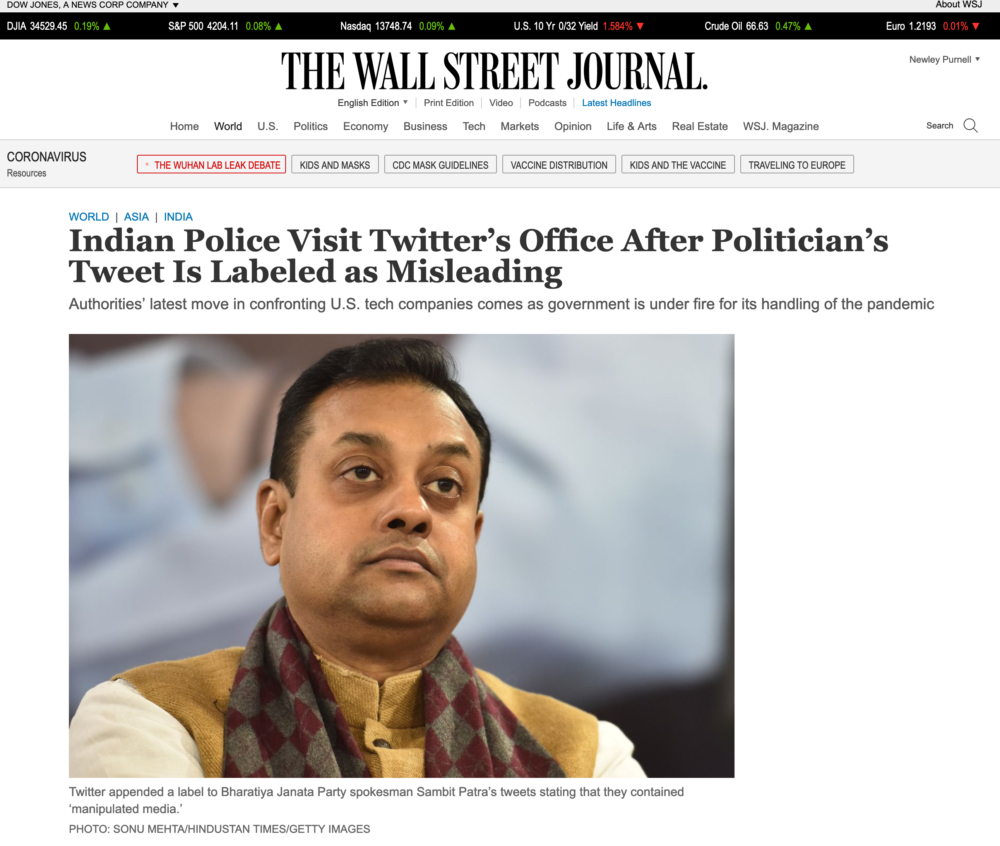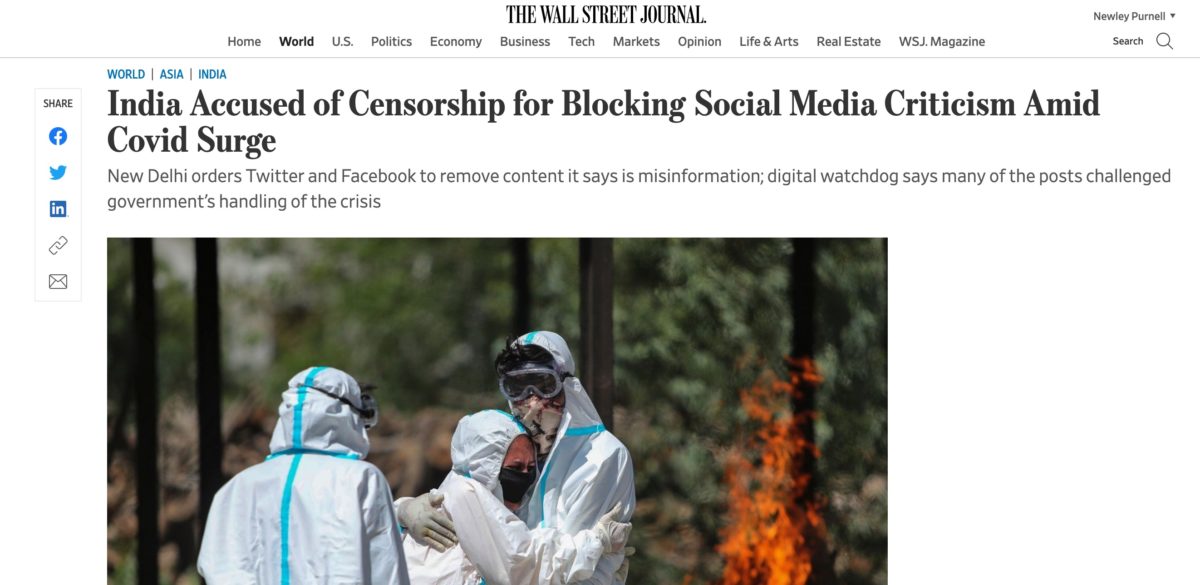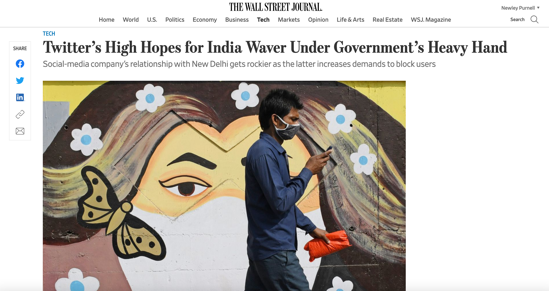That’s the headline on my latest story, out Wednesday. It begins:
Twitter Inc. under Elon Musk has reinstated several previously suspended Hindu nationalist accounts that were popular in India, one of its largest markets by users, with human-rights groups saying the move has spurred a resurgence of divisive religious material on the platform.
Some of the accounts that were suspended had been reported for posting hate speech aimed at religious minorities in India, according to groups that reported them. Upon their return in recent weeks, some have tweeted material denigrating Muslims and others.
The tweets include a debunked video that the person who posted it claimed showed a Muslim cleric spitting on rice before serving it to others, another calling Pakistani Muslims “rectums,” and a retweet of a user who called the Quran “the source of all evil.”
The Hindu-majority South Asian nation has deep social and religious divisions that have in the past erupted into fatal religious confrontations, sometimes connected to material spread online. Muslims make up about 14% of India’s population.
Twitter had 41 million users in India as of December, making it the company’s third-biggest market by users after the U.S. and Japan, according to eMarketer, a unit of data and research firm Insider Intelligence.
Twitter didn’t respond to requests for comment.
Click through to read the rest.
